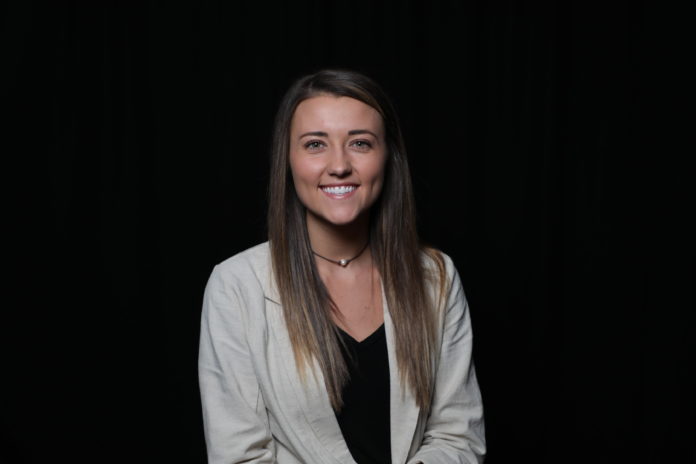
By Bailey Brammer | Editor-in-Chief
Dallas junior Hannah Causey, a candidate for student body president, was found not guilty of breaking the electoral code after an Electoral Commission hearing on Wednesday. The hearing was called after a complaint was raised by another candidate, Huxley, Iowa, junior Austin Allaire.
Houston senior Chelsea Teague, electoral commissioner, presided over the Commission and said they found Causey not guilty and had no reason to penalize her.
“The decision of the Commission is clear,” Causey said. “There was no violation and I haven’t tried to gain any unfair advantage. Instead of speaking to us about it, Allaire wrote a suit and waited to submit it until a very inopportune time for us to give us inadequate time to prepare. Thankfully, it was a frivolous and groundless lawsuit because we have tried to run a very clean campaign and have passed on filing suits.”
According to the decision of the Electoral Commission in “Elections Marshall v. Causey,” Causey reposted an Instagram post that had originally been made by Waco Native, a local clothing retailer. The post acted as an endorsement for Causey’s campaign, and offered a 30 percent discount to customers with the code “CAUSEY.”
Allaire filed the complaint against Causey through Ithaca, N.Y., senior Elaine Renberg, the elections marshall. By filing through Renberg, Allaire was not required to be present at the Electoral Commission hearing to represent himself.
The decision states when Causey became aware that her campaign team had re-posted Waco Native’s post, Causey asked Teague whether or not the inclusion of the discount violated the electoral code, and Teague told Causey there was no cause for violation.
Allaire’s complaint against Causey was based on the grounds that the “discount [functioned] as a free handout material, and should be expensed to the campaign on a per-use basis.”
According to the decision, Causey and her team brought up the notion that “since candidates endorsed by the Lariat student newspaper are not expected to expense the cost of circulation of the newspaper, then the defendant [Causey] should not be expected to expense the cost of a similar endorsement item, this discount code.”
Allaire was one of three candidates endorsed by the Lariat editorial board on March 28, the others of which were Fort Worth junior Elizabeth Larson, internal vice president candidate, and San Antonino sophomore Sloane Simpson, external vice president candidate.
The Electoral Commission agreed with Causey’s defense and determined that no penalty would be enacted against Causey because of the nature of the endorsement from a third-party, the fact that Causey “had no hand in its implementation,” and that she was not in violation of the electoral code.
Teague said Causey and her campaign team filed a counter-complaint against Allaire on Thursday, which was considered by the Electoral Commission before it was determined that “the case did not merit a hearing based on our interpretation of the electoral code.”
Causey’s counter-complaint against Allaire was “regarding his use of the ‘Baylor University Student Government’ location on Instagram posts.” Teague said Causey and her team have the opportunity to appeal this decision to the student court but have not yet pursed this avenue.
Marble Falls junior Tyler Rutherford, chief justice of Baylor student court, confirmed that Causey and her team have not made an appeal to student court.
The Lariat reached out for comment to Allaire personally, as well as to his campaign, both of which declined to comment.




